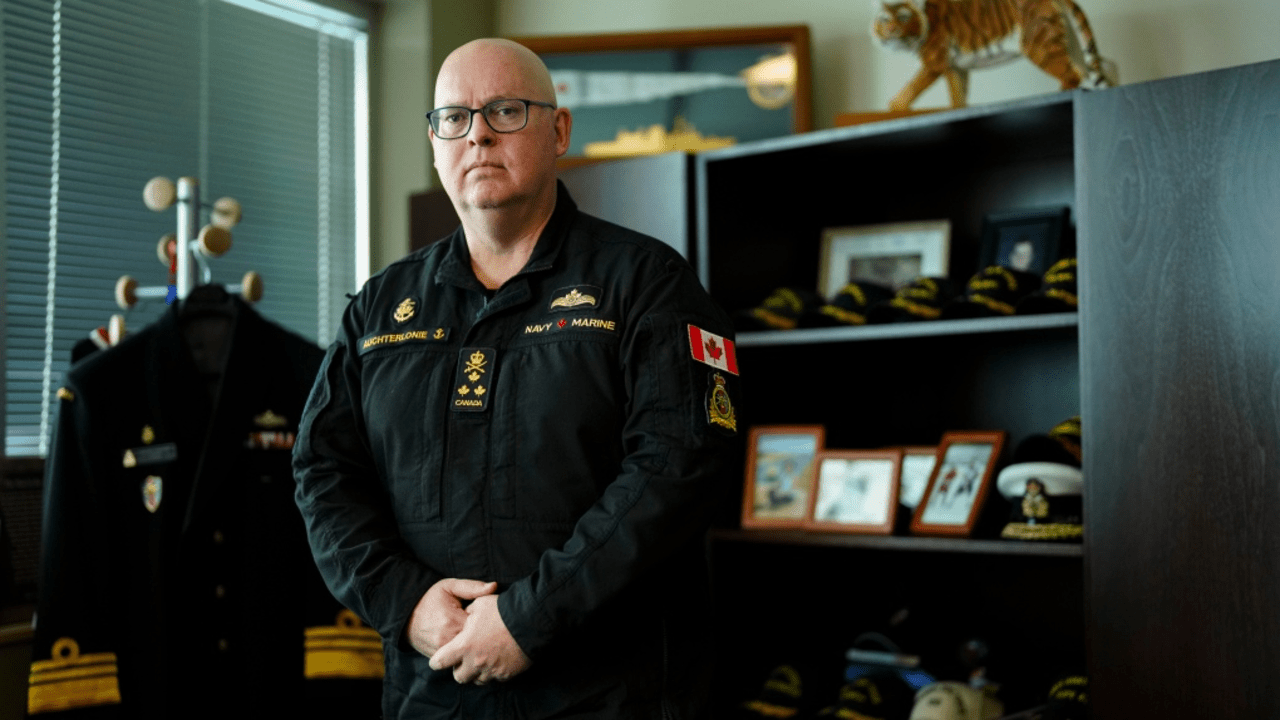Commonwealth _ Vice Admiral Bob Auchterlonie, the commander of the Canadian Joint Operations Command, has had a remarkable year overseeing various critical operations. He’s coordinated airlifts of Canadians from Sudan and Israel, strategized potential evacuations from Lebanon and Haiti, and managed increasing demands for assistance within Canada. In an interview, Auchterlonie expressed concerns about Canadians feeling too secure amidst a changing global landscape. He highlighted numerous international issues, including Russia’s invasion of Ukraine, Israel’s conflicts, coups in African nations, tensions in the Balkans, and challenges in countries like Venezuela causing mass migration. Auchterlonie emphasized the significant deterioration in global security and the misconception that Canadians are inherently safe due to geographic isolation. He believes this sense of safety is naive, pointing out escalating competition among major world powers and growing tension between advocates of the rules-based international order and challengers like China, Russia, and Iran. He noted the challenges faced by Canada as a middle power and highlighted the country’s lag in investing in new security capabilities. While not explicitly stating whether Canada’s influence has waned, Auchterlonie acknowledged facing unprecedented questions about Canada’s standing in global affairs.
Vice Admiral Bob Auchterlonie highlighted concerns about Canada’s reliability as a partner due to questions raised by close allies regarding commitment and investment. He mentioned facing inquiries about Canada’s dedication and its trustworthiness in future collaborations. Canada has grappled with defense spending issues for years, drawing attention from the incoming Norad commander, Lt.-Gen. Gregory Guillot. Guillot expressed intentions to engage in challenging conversations with Canadian officials regarding funding for continental defense during his confirmation hearings in the U.S. Senate. While NATO allies have committed to spending a minimum of two percent of their gross domestic product (GDP) on defense, with a fifth of that allocated to new equipment, Canada has yet to present a concrete plan to reach the two percent threshold. The country has advocated for an alternative formula to meet its targets. The federal government has initiated multi-billion-dollar procurement projects for various military assets such as Arctic and offshore patrol ships, F-35 fighter jets, P-8A surveillance aircraft, unmanned drones, and surface combatants. However, many of these acquisitions are still several years away from deployment.
Canadian military personnel have been increasingly involved in domestic disaster recovery and response efforts due to rising occurrences of natural disasters and extreme weather in recent years. Vice Admiral Auchterlonie emphasized the need for trade-offs within the Canadian Armed Forces and the government as a whole due to these demands. In 2023 alone, over 2,000 Armed Forces members were deployed for 131 consecutive days to combat wildfires across Canada. During the wildfires in Yellowknife, the military assisted in planning evacuations when the city faced fire threats, aiding in the safe relocation of 158 individuals from hospitals and care homes. Auchterlonie noted that while the military was the last resort in that instance, possessing the specialized equipment needed, such situations aren’t always the case. He highlighted that extensive involvement in domestic operations diverts troops from essential training for international missions, a concern as demand for domestic assistance shows no signs of slowing down. With climate change triggering more frequent and severe weather events, Defence Minister Bill Blair has acknowledged that Canadians find reassurance in witnessing uniformed troops providing aid during disasters. Auchterlonie advocates for a critical discussion about the military’s role in disaster response and the potential for emergency management agencies to assume greater responsibility in such scenarios.








